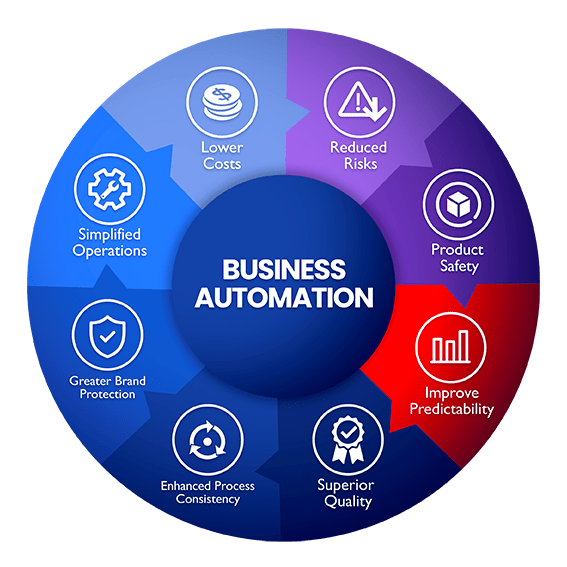Best Practices for Successful Field Service Management
Contents
What are the key components of a successful field service management system?
Field Service Management (FSM) has become an integral part of modern business operations. Whether you're in the manufacturing, retail, or service industry, having a robust FSM system is essential for streamlined field operations, increased customer satisfaction, and overall efficiency. In this blog post, we'll delve into the key components of a successful FSM system and identify the types of customers that can benefit from it.
As your manufacturing, retail, or service industry business expands, managing field operations becomes a complex and time-consuming task. The need for an efficient and streamlined system to manage field operations has become increasingly important. This is where Field Service Management Solutions (FSMS) come into play. The primary objective of FSMS is to simplify the management of field operations such as scheduling, dispatching, tracking, and reporting of field activities.
Field service management is a critical aspect of any business that operates in the field. For organisations that rely on their field workforce to deliver services, having a robust field service management system is essential. A successful field service management system comprises of several key components that work together to streamline business processes, optimize resources, and enhance customer satisfaction. These components include:
1. Scheduling and Dispatching: A successful FSMS solution should have a user-friendly scheduling and dispatching interface, allowing businesses to assign tasks to field technicians quickly and easily i.e. efficient resource management for your team wherever they may be located.
2. Tracking and Reporting: A good FSMS system should have the capability to track and monitor field activities, enabling businesses to have a real-time view of field operations. This also includes reporting tools that allow businesses to generate custom reports based on their needs.
3. Mobile Access: A successful FSM system should be mobile-friendly, enabling field technicians to access relevant information, update their status, and communicate with the office in real-time, even when they are not connected to the internet.
4. Integration: An integrated FSM system should enable the business to integrate with other operational systems such as ERP, CRM, and accounting systems, eliminating the need for manual data entry and reducing the risk of errors.
Let's drill down into these areas a bit more and particulary what sub-systems does FSMS require from the Business Core ERP aspects?
FSMS Cloud ERP Inventory Integration
Inventory management is a critical component of FSMS and of course is managed within the company's financial operations as it involves managing the purchase, storage, and sale of inventory items. To effectively manage inventoryin an FSMS, financial integration is required in the following aspects:
Purchase Orders: An inventory management system should integrate with the company's financial system to automatically generate purchase orders when inventory levels fall below a specified threshold. This ensures that the company has sufficient inventory to meet customer demand while minimizing the cost of excess inventory.
Accounts Payable: The inventory management system should integrate with the company's accounts payable system to ensure that vendor invoices are accurately recorded and paid on time. This ensures that the company maintains good relationships with its vendors and avoids late fees and penalties.
Cost Tracking: The inventory management system should track the cost of inventory items, including the purchase price, freight charges, and any other associated costs. This enables the company to accurately calculate the cost of goods sold and calculate gross margins.
Sales Orders: The inventory management system should integrate with the company's sales order system to ensure that inventory is reserved for customer orders and that the system updates inventory levels in real-time. This ensures that the company can fulfill customer orders on time and avoid stockouts.
Accounts Receivable: The inventory management system should integrate with the company's accounts receivable system to ensure that customer invoices are accurately recorded and paid on time. This ensures that the company receives payment for goods sold and avoids cash flow problems.
General Ledger: The inventory management system should integrate with the company's general ledger system to ensure that all inventory-related transactions are accurately recorded and reported. This enables the company to generate accurate financial statements and comply with accounting regulations.
Financial reporting: The inventory management system should provide financial reporting capabilities, such as inventory valuation, inventory turnover, and gross margin analysis. This enables the company to make informed decisions about inventory management and optimize financial performance.
What strategies can be used to ensure effective scheduling of field service technicians?
As a business owner, you understand the importance of efficient and effective field service operations. One of the key components of successful field service management is the scheduling of your field service technicians. Ensuring that your technicians are dispatched to the right job at the right time can have a significant impact on both customer satisfaction and your bottom line. In this party of the post, we will round out on some strategies mentoned above that can help you achieve effective scheduling of field service technicians.
1. Automate Scheduling: One of the best ways to ensure effective scheduling is to use an automated scheduling system. With an automated system, you can streamline the scheduling process, reducing the likelihood of errors and scheduling conflicts. Your technicians can be automatically assigned to jobs based on their availability and skillset.
2. Prioritise Urgent Jobs: Prioritising urgent jobs is another important strategy for effective scheduling. When an urgent job comes in, it's important to assign a technician as quickly as possible to ensure that the issue is resolved promptly. Your scheduling system should allow you to easily identify urgent jobs so that you can prioritize them accordingly.
3. Consider Geography: When scheduling technicians, it's important to consider their location in relation to the job site. Sending a technician who is far away from the site can lead to delays and increased travel time, which can ultimately impact customer satisfaction. Scheduling technicians based on their location can help to minimize travel time and improve efficiency.
4. Optimise Journey Planning: Optimising the route that your technicians take when traveling to job sites cansignificantly improve efficiency and reduce travel time. Your scheduling system should allow you to map out the most efficient route based on the technician's location and the location of the job site. This can help reduce fuel costs and increase the number of jobs your technicians can complete in a day.
By implementing these strategies, you can ensure effective scheduling of your field service technicians and streamline your field operations. This can ultimately lead to increased customer satisfaction, improved financial performance, and a competitive edge in your industry. As a business owner, investing in a comprehensive field service management solution can help you master the field and take your business to the next level.
What are the benefits of implementing a mobile field service management system?
Mobile field service management systems (FSMS) have become increasingly popular among businesses that rely on field operations to deliver their products or services. These systems are designed to streamline the entire field service process, from scheduling and dispatching to tracking and invoicing. In this blog post, we will be discussing the benefits of implementing a mobile app for field service for your business.
1. Increased Efficiency and Productivity
One of the main benefits of implementing an FSMS solution is increased efficiency and productivity. With a mobile FSMS, your field operations team can access real-time information about customers, schedules, and inventory from anywhere, at any time. This means that they can respond to customer requests faster, complete more jobs in a day, and reduce downtime between appointments.
2. Improved Customer Service
With a mobile field service management system, you can provide your customers with better service. By automating scheduling and dispatching, you can ensure that your technicians arrive on time and with the right tools and equipment to complete the job. With access to real-time information, they can also provide more accurate estimates and invoicing, reducing the need for follow-up visits.
3. Enhanced Communication and Collaboration
Mobile field service management systems also enable better communication and collaboration between your field operations team and the office. With real-time updates, everyone can stay informed about job progress, inventory levels, and scheduling changes. This means that you can make informed decisions and adjust schedules on the fly, reducing the risk of delays or miscommunication.
What are the challenges of managing a geographically dispersed field service team?
Managing a geographically dispersed field service team can be challenging due to various reasons such as limited visibility, communication barriers, and operational inefficiencies. The lack of visibility into the team's activities and progress can make it difficult to identify potential issues and take corrective actions in a timely manner. Furthermore, communication barriers such as language, time zones, and connectivity can hinder effective collaboration and coordination among team members.
Operational inefficiencies can also arise when managing a geographically dispersed field service team. For example, it can be difficult to optimize the allocation of resources and schedule appointments efficiently when the team is spread out across different locations. Additionally, managing the inventory and logistics of field equipment and supplies can become more complex when dealing with a dispersed team.
To overcome these challenges, it is essential to have a robust field service management system (FSMS) in place. An FSMS solution can provide real-time visibility into the team's activities, allowing managers to track their progress and identify potential issues early on. It can also facilitate communication and collaboration among team members through features such as messaging, video conferencing, and shared calendars.
Furthermore, an FSMS solution can help optimize resource allocation and scheduling by providing tools for appointment booking, dispatching, and route optimization. This can help ensure that the right technician with the right skills and equipment is assigned to each job, improving the first-time fix rate and reducing travel time and costs.
Finally, an FSMS solution can help manage inventory and logistics by providing features for tracking equipment and supplies, managing stock levels, and automating replenishment. This can help ensure that field technicians have the necessary equipment and supplies to complete their jobs, reducing downtime and maximizing productivity.
In conclusion, for businesses looking to streamline their field operations and increase customer service and overall efficiency, implementing an FSMS solution can be a game-changer. By providing real-time visibility, facilitating communication and collaboration, optimizing resource allocation and scheduling, and managing inventory and logistics, an FSMS solution can help overcome the challenges of managing a geographically dispersed field service team and ensure success in the field.


